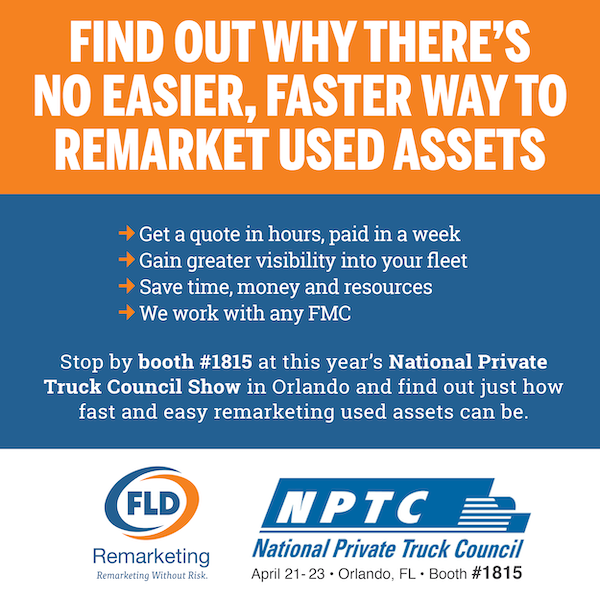
NAFA Lobbies for Rollbacks and Four Other Fleet-Related Issues
By Mark Boada, Executive Editor
President Trump’s tariffs, launched last year to protect American industry and punish China for unfair trade practices, are now hurting fleets and jeopardizing road safety.
That was the word last week at NAFA’s DC Fly-By, its annual meeting of its Government Affairs Committee. Twelve members of the committee spent two days in the Washington D.C. area to hear presentations by executives from industry and auto industry trade associations, Congressional staffers, and a representative of the U.S. Department of Energy’s Office of Vehicle Technologies.
After a series of presentations, organized by Pat O’Connor, NAFA’s U.S. legislative counsel, and NAFA Board member Maria Neve, the committee peeled off on Friday to lobby the offices of 15 key of members of Congress on five fleet-related issues on which NAFA has taken an official position. These include:
- The rollback of Trump tariffs on steel, aluminum and imported auto parts, and cancellation of proposed tariffs on imported vehicles;
- Expansion of tax credits for the acquisition of electric vehicles;
- Legislative protection of the right for owners and lessees to access digital automobile data;
- Protection of a portion of the radio frequency spectrum currently designated for advanced auto safety connectivity against demands for those frequencies by WIFI companies;
- Extension of tax credits for alternative fuels, including autogas, compressed and liquefied natural gas and other alternatives.
NAFA’s Government Affairs Committee consists of fleet executives and managers from the corporate and government world and representatives of fleet suppliers. On tariffs, guest presentations and conversations among members of the committee revealed that:
- Trump’s tariffs on steel, aluminum and imported auto parts have pushed prices for replacement parts considerably higher. One example cited in was the price of brake rotors, which one supplier said has risen from around $30 apiece to more than $70, or an increase of more than 100%. Fleet repairs covered by carmaker warranties aren’t being affected, one fleet manager who is also a committee member noted.
- As a result, some fleets have experienced increases of 15% to 20% in their parts budget and increases of thousands of dollars for the upfitting of specialty vehicles. The effects have been to cause budget overruns, the curtailment of some upfitting projects, the resorting to cheaper, lower-quality parts or the deferment altogether of some preventive maintenance and putting unmaintained, but still needed vehicles out service.
- Faced with having to absorb price increases or pass them along and see sales slump, some local parts dealers have gone out of business.
- Unable to pass along the costs, a number of municipal fleets have shut down their own maintenance and repair operations in favor of outsourcing, causing the loss of jobs in affected communities.
Hit with higher prices, growing numbers of consumers across the have deferred auto repairs and routine maintenance, threatening the safety of the nation’s roads, said one of the committee’s guest speakers, Catherine Boland, vice president of legislative affairs for the Motor & Equipment Manufacturers Association.
According to Auto Care Association, which represents more than 500,000 independent automotive aftermarket manufacturers, distributors, repair shops, marketers and retailer, Americans have a total of $24.9 billion in deferred automotive preventive maintenance.
The Trump administration began setting tariffs on a variety of imports last year. In March 2018, it imposed tariffs of 25% on steel and 10% on aluminum. In separate moves, it set and escalated tariffs on goods imported from China, a major source of auto parts and accessories.
In addition, Trump has proposed a 25% tariff on imported cars and parts, which he claims represent a threat to national security. The President postponed the implementation of the tariff last May, pending the completion of an investigation by the Commerce Department. By law, by the middle of November Trump either implements the tariff or issues another six-month postponement.
NAFA’s Government Affairs Committee visited the offices of Senators Pat Toomey (R-PA) and Rob Porter (R-OH), who have introduced competing bills to block the president’s ability to establish tariffs for reasons of national without Congress’s approval. Members of NAFA’s committee visited both Senators’ offices to ask for their continued opposition to Trump’s auto-related tariffs.
The independent Center for Automotive Research has estimated that a 25% percent tariff applied to all auto imports could raise the average price of a car sold in the U.S. by as much as $4,400. NAFA’s briefing document for committee members said, “Far from strengthening our national security…[the] tariffs would weaken the health of the U.S. auto industry and with it the overall economy…and would be detrimental to national security.”
The briefing document went on to say that the tariffs “will be disruptive to virtually every industry sector, significantly increasing the cost of vehicle acquisition and maintenance and negatively impacting vehicle fleet turnover as the deployment of safer and cleaner technologies is delayed.” It added that they would also have a negative effect on “U.S. leadership in future innovations on leading-edge technologies, from autonomous vehicles to electrification.”




